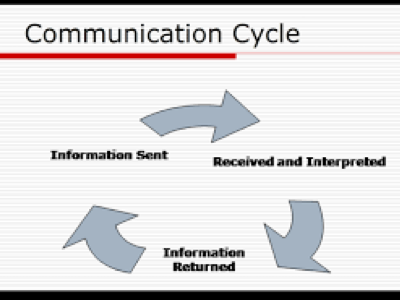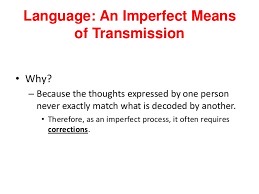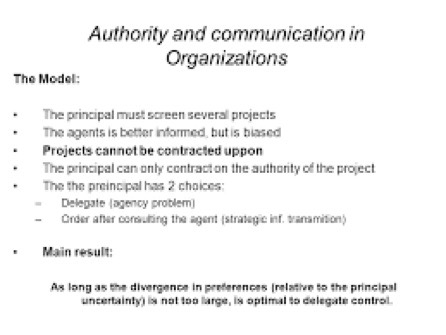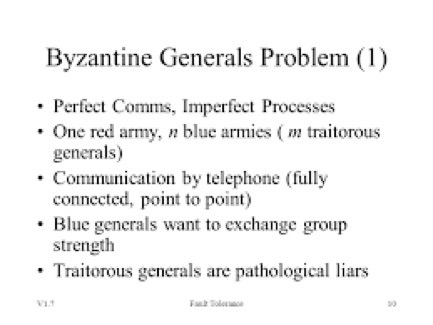
Following on from writing about bracken I continue to wonder where we are going as a society. In particular, what we might do to counter trends we are concerned are not good. One such is the speed of communication; its apparent ease is making us (all) very sloppy in our language and in consequence, I say, correspondingly sloppy, even lazy, in our thinking.
Those in public life are discovering how very careful they need to be, for example, in tweeting, in any sort of published comment, and in making jocular asides. It amazes me how Boris Johnson can be funny in person but how the (accurate) reporting of what it is he said makes him such a (painted) patent failure. Have we lost any appreciation of humour? That care with which public people must speak is going to percolate to us all, or else our society will become rapidly much more rude than it already is. Perhaps, like me, you will choose to be rude, but equally you may discover that you have offended where no such offence was intended. Choice, then, to say as little as possible. Indeed, I can see a strong case to play safe by non-participation. If we are put in positions where we must be careful what we say, then we need to learn to be more precise in what it is that we say (record, publish, etc) or face the results. We could look at this another way and wish that we were all more tolerant. I am fairly sure that if I do wish to offend you, you will detect that intent. Which is not at all the same as you choosing to be offended, nor the same as my choice of words causing you to think you have been insulted.
We succeed in allowing communication speed to displace any attempt for precision. This appals me, as you can tell from the number of times I have written on the topic [and, indeed, by the level of typos that survive past the first upload]. I fail to see how these two things, speed and precision, should be connected – but I can see that for many they are connected. Similarly, I am disturbed by the failure to think critically; many of us fail to examine data critically but perhaps underneath that it is becoming more difficult to detect the bias in the information you discover. For example, if you research effects of smoking, do you then disregard all evidence from the tobacco manufacturers, except perhaps in those cases where they are recognising something damaging to their business? Apart from deploring the lack of honesty, even if only in failing to admit to bias, one significant consequence in the fight for perceptions (always stronger than truth) is that one would make sure to hide the source. So if I were in the business of, let’s say, pushing cigarettes, I’d be funding businesses to push my message, but at the same time trying hard to bury any connections to me well out of sight. What we already see is that sources of information are tainted by their funding, are labelled by their perceived politics, however true or untrue. We might look to academic work for unbiased conclusions, but here too we have the taint of funding to make whatever conclusions are put forward look biased. Whether they are or not biased is no longer material; the problem is that anyone can point to a connection and imply, impute or conclude consequences. Proving a negative is virtually impossible.
Where then do we go to find sources we trust? We can’t. Some of us can’t even trust ourselves to be consistent in how we deal with data. I’d like to use the word ‘fact’, but that itself is too often in dispute. Perhaps we are reduced to needing extensive dispute over what it is we can agree upon before we began to have any further disagreement. This rapidly builds into a logic tree likely to have fundamental flaws. Not least, we will soon rediscover—perhaps I mean recognise—the levels of trust required to attempt communication.
Today I have attempted a different sort of research and looked at quotes on the topic of communication. By juggling them into some sort of order I may prompt you into thought. More importantly, it may steer you into a commitment to improve your communication. Though please note that I carefully refrain from attempting to tell you what ‘improve’ means; you have to set such targets yourself.
“When the trust account is high, communication is easy, instant, and effective.”― Stephen R. Covey, The 7 Habits of Highly Effective People: Powerful Lessons in Personal Change
“The single biggest problem in communication is the illusion that it has taken place.” ― George Bernard Shaw
“The speed of communications is wondrous to behold. It is also true that speed can multiply the distribution of information that we know to be untrue.” ― Edward R. Murrow
Covey is right; trust is a crucial element of communication – it goes a long way in explaining how Boris’s humour fails, for he is trusting the person immediately in front of him to understand, and in context, whereas the quotes we subsequently see are not in context. The next essay applies. So while the (typically offending Boris) quote is accurate, in the sense that it occurred and those were the words used, the context is lost because when we read it we are outside that context. And, no doubt also outside whatever charismatic cloud envelops experienced politicians. Charisma: That thing that persuades you to agree (sometimes merely to listen, somehow rapt) with <whosoever has the magic of charisma> at the time. Possibly a form of hypnotism. 1,2
For our society is to make positive progress, we must find ways to push it into creative, non-destructive paths. So, for example, trolling must be stamped out. Similarly, we need to build skills that allow us to recognise false truths.
“We speak not only to tell other people what we think, but to tell ourselves what we think. Speech is a part of thought.” ― Oliver Sacks, Seeing Voices
“Listen with curiosity. Speak with honesty. Act with integrity. The greatest problem with communication is we don’t listen to understand. We listen to reply. When we listen with curiosity, we don’t listen with the intent to reply. We listen for what’s behind the words.” ― Roy T. Bennett, The Light in the Heart
Aye, there’s the rub. Self-honesty is a part of the problem. How can you act with integrity if you don’t already speak with honesty? How can you speak with honesty if you have not actually been through a process that results in internal decision making? Sacks is right, that we often need to try out an idea verbally, but some of us in effect do this as if needing an external focus group. I wonder if this is an internal failure of something like consistency, as if there are some missing principles. The individuals I have met who exhibit this have, so far, also shown a lack of internal honesty. By which I mean that they tell themselves one thing but don’t match that with their own words and deeds.
As Kafka describes: “What I write is different from what I say, what I say is different from what I think, what I think is different from what I ought to think and so it goes further into the deepest darkness.” ― Franz Kafka
I’m glad Kafka is speaking for himself. I may modify what I say somewhat for the audience, but, joking apart, I do say what I think and I do mean what I say. At least, I try to do so. Who is to say what I ‘ought to think’? Hopefully, no-one.
“What’s not so great is that all this technology is destroying our social skills. Not only have we given up on writing letters to each other, we barely even talk to each other. People have become so accustomed to texting that they’re actually startled when the phone rings. It’s like we suddenly all have Batphones. If it rings, there must be danger.
Now we answer, “What happened? Is someone tied up in the old sawmill?”
“No, it’s Becky. I just called to say hi.”
“Well you scared me half to death. You can’t just pick up the phone and try to talk to me like that. Don’t the tips of your fingers work?”
― Ellen DeGeneres, Seriously... I'm Kidding
“The level of intelligence has been tremendously increased, because people are thinking and communicating in terms of screens, and not in lettered books. Much of the real action is taking place in what is called cyberspace. People have learned how to boot up, activate, and transmit their brains.
Essentially, there’s a universe inside your brain. The number of connections possible inside your brain is limitless. And as people have learned to have more managerial and direct creative access to their brains, they have also developed matrices or networks of people that communicate electronically. There are direct brain/computer link-ups. You can just jack yourself in and pilot your brain around in cyberspace-electronic space.” ― Timothy Leary, Chaos & Cyber Culture
Leary clearly means something different from my understanding of the word intelligence. In terms of what we do with the information available I’d argue we are provably more stupid, since while we are evidently able to make many connections between items, we are just as evidently less able to make connections that stand up to scrutiny.
“Communication is truth; communication is happiness. To share is our duty; to go down boldly and bring to light those hidden thoughts which are the most diseased; to conceal nothing; to pretend nothing; if we are ignorant to say so; if we love our friends to let them know it.” ― Virginia Woolf, The Common Reader
I disagree with almost all of this. I agree in searching out the diseased thoughts, but not with any part of obligatory sharing. I can think of worse activities, but I won’t participate in those, either.
“Let me just acknowledge that the function of grammar is to make language as efficient and clear and transparent as possible. But if we’re all constantly correcting each other’s grammar and being really snotty about it, then people stop talking because they start to be petrified that they’re going to make some sort of terrible grammatical error and that’s precisely the opposite of what grammar is supposed to do, which is to facilitate clear communication.” ― John Green
Oh, I so agree. But the failure to recognise ambiguity is the cause of so much failure of communication. In a sense, I trust that you understand and I trust that you are going to understand. What I require is sufficient feedback to recognise that what you understand is (close enough to) what I meant.
“In the information-communication civilisation of the 21st Century, creativity and mental excellence will become the ethical norm. The world will be too dynamic, complex, and diversified, too cross-linked by the global immediacies of modern (quantum) communication, for stability of thought or dependability of behaviour to be successful.” ― Timothy Leary, Chaos & Cyber Culture
I like what he writes, but I have been bemoaning the lack of what Leary hopes for. In a sense, I am agreeing with him to the extent that I am hoping to persuade you (too) of the need for, as he puts it, mental excellence. Here’s similar encouragement to give reason to apply reason and consideration to what one believes has elements of truth:
“Mass amateurisation of publishing makes mass amateurisation of filtering a forced move.” ― Clay Shirky, Here Comes Everybody: The Power of Organizing Without Organizations
Unfortunately, as essay 227 observes, the ease in which one can join a community is not necessarily a good thing. In my opinion it is helping us mislead ourselves into herd reactions quite in opposition to what Leary advocates. These quotes apply:
“With the Internet, we can choose the very communities we want to be a part of.” ― Alex Shakar, The Savage Girl
“Your comfort zone is a place where you keep yourself in a self-illusion and nothing can grow there but your potentiality can grow only when you can think and grow out of that zone.” ― Rashedur Ryan Rahman
“The first problem of communication is getting people's attention.” ― Chip Heath, Made to Stick: Why Some Ideas Survive and Others Die
“Instant communication is not communication at all but merely a frantic, trivial, nerve-wracking bombardment of cliches, threats, fads, fashions, gibberish and advertising.” ― Edward Abbey, Postcards from Ed: Dispatches and Salvos from an American Iconoclast
“The revolution in global communications thus forces all nations to reconsider traditional ways of thinking about national sovereignty.” ― George Shultz
No doubt, but I’d edit this to a more general form; “The revolution in global communications thus forces all to reconsider traditional ways of thinking”.
“Phones with numerical keypads worked best for dialling phone calls. Incidentally, phone calls tend to be the primary function of a phone. 'Smartphones' completely ignore these basic facts, resulting in some of the least intelligent devices I've seen yet. Oh the irony.” ― Ashly Lorenzana
“We have developed communications systems to permit man on earth to talk with man on the moon. Yet mother often cannot talk with daughter, father to son, black to white, labour with management or democracy with communism” ― Hadley Read, Communication: Methods for All Media
Different meaning in terms of purpose in the use of the word ‘talk’.

"The two words 'information' and 'communication' are often used interchangeably, but they signify quite different things. Information is giving out; communication is getting through." Sydney J. Harris
“To make our communications more effective, we need to shift our thinking from "What information do I need to convey?" to "What questions do I want my audience to ask?” ― Chip Heath, Made to Stick: Why Some Ideas Survive and Others Die
Heath is right, within the context of which he speaks, not included here. Where we wish to communicate an idea, we do need to cause thinking to occur. That explains why so many found my lessons uncomfortable – I required them to do thinking. Too many of us simply don’t want that. My wife says she finds it an effort to do thinking, where I find it very difficult to do not-thinking. Harris is also right, and so explains Heath.
DJS 20170623
top pic google of course,
from here
Remaindered:
“Open scatter is more fundamental than coupled sharing; it is the stuff from which, on splendid occasions, dialogue may arise.” ― John Durham Peters, Speaking into the Air: A History of the Idea of Communication
“When people challenge your ideas, they help you (whether they know it or not).” ― Oli Anderson, Dialogue / Ego - Real Communication
“Debate is an attempt to cling to the illusion of control provided by a point of view designed to keep the ego in place; dialogue is an attempt to dance with the unknown at the risk of losing what we think we know.” ― Oli Anderson, Dialogue / Ego - Real Communication
“We are in an age that assumes the narrowing trends of specialisation to be logical, natural, and desirable. Consequently, society expects all earnestly responsible communication to be crisply brief. Advancing science has now discovered that all the known cases of biological extinction have been caused by over-specialisation, whose concentration of only selected genes sacrifices general adaptability. Thus the specialist’s brief for pinpointing brevity is dubious. In the meantime, humanity has been deprived of comprehensive understanding. Specialisation has bred feelings of isolation, futility, and confusion in individuals. It has also resulted in the individual’s leaving responsibility for thinking and social action to others. Specialisation breeds biases that ultimately aggregate as international and ideological discord, which in turn leads to war.” ― R. Buckminster Fuller
Baudrillard keeps coming up, but he is hard work. I need longer to work on his content. I have hit the current (time-local) end of patience with this topic and so, if you read this, please be aware that this is what would be best described as the pre-publication work-in-progress, not even a completed draft. https://plato.stanford.edu/entries/baudrillard/


I love this, found near the top of the googled image list, because it exemplifies so many of the points about communication. Grammar fail; consequential communication fail. On the other hand, if used as a slide in a presentation, one could say quite a bit about it, but preferably not as the author. Perhaps we’d prefer principle over principal to further the confusion?
source Slide 5 is the first of these three.
Byzantine generals problem comes from computing. wikipedia. A more fun description is: a situation where involved parties must agree on a single strategy in order to avoid complete failure, but where some of the involved parties are corrupt and disseminating false information or are otherwise unreliable.
Indeed, this is a fun topic altogether, of the sort that ought to come up at school but doesn't cross one's horizon until university. It is the sort of thing I'd like to see the history teacher present to scientists.

This is from a study of Fault Tolerance, on a site labelled slide-player. The adjacent slides are studying fault processes which I recognised as mathematical modelling, perhaps falling within graph theory. I found this fascinating.